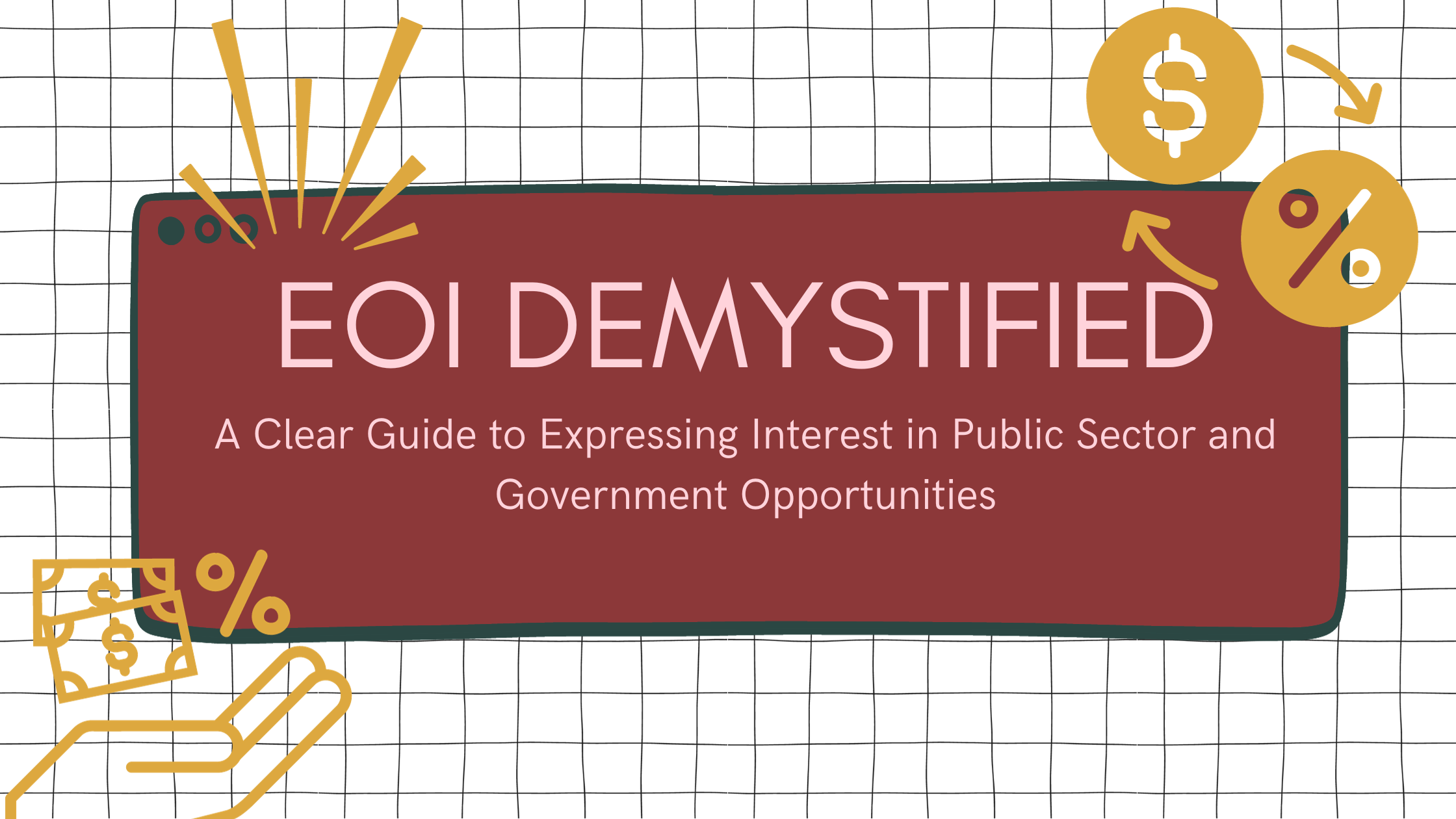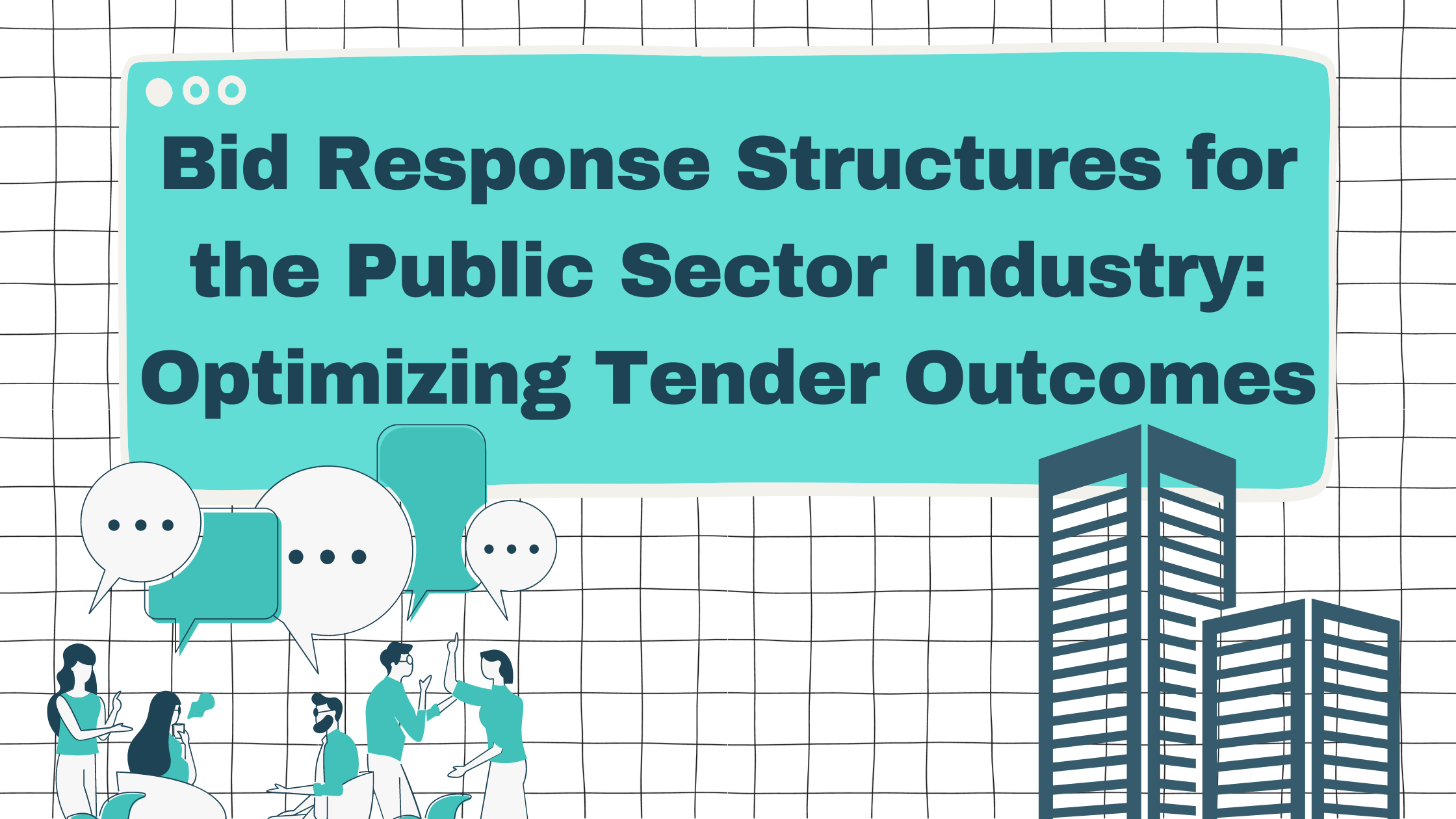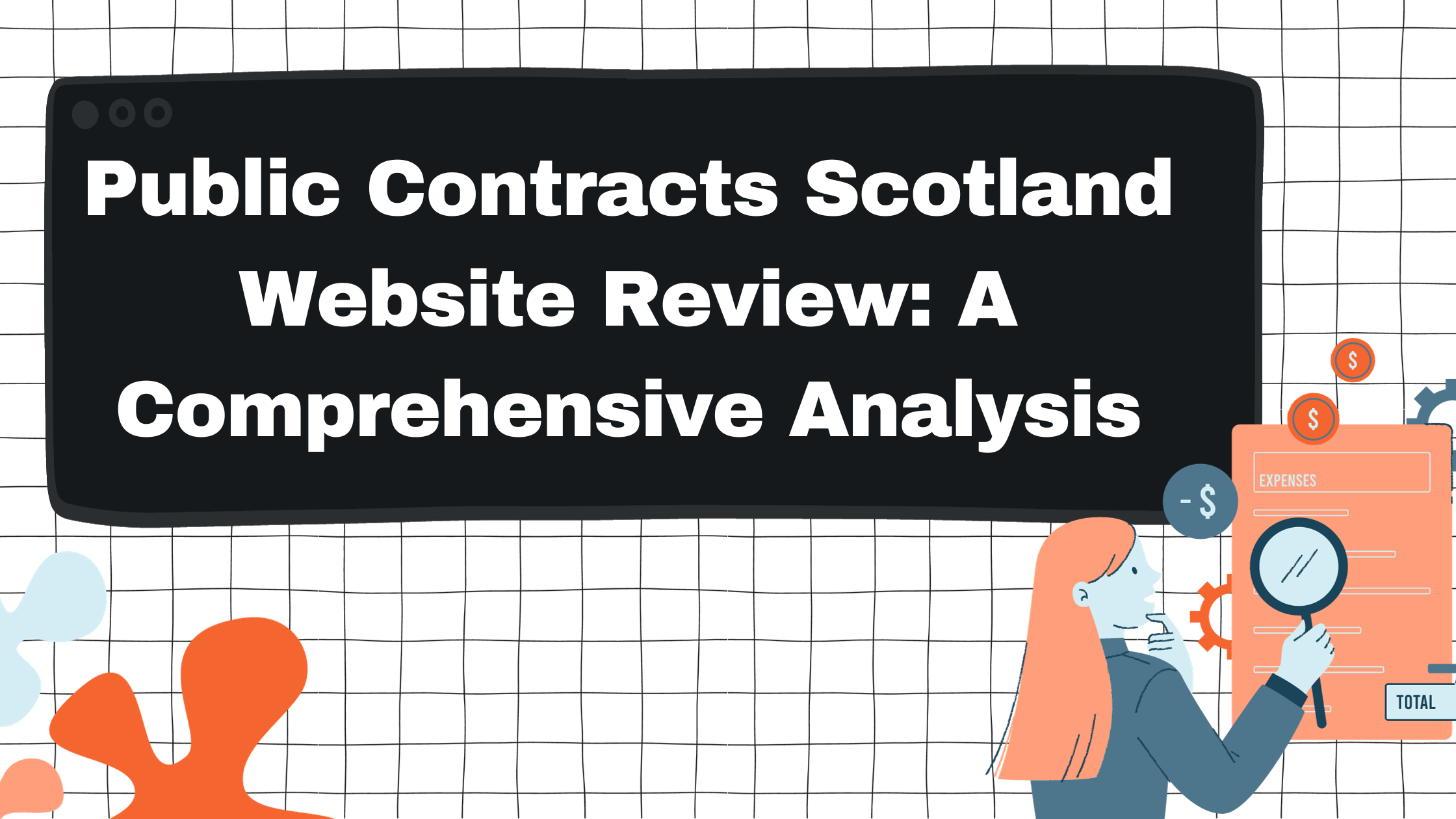Expert Proposal Writing and RFP Services: Mastering Contract Acquisition

Need Help with Your Bid?
Get in touch by filling out the form and one of our advisors will be in contact.
Contact UsWhat is a Bid Writing Consultant: Your Expert Guide in Securing Contracts
A bid writing consultant operates in the crucial arena of procurement and tendering, offering specialized skills to navigate the complex process of competing for contracts. These individuals or agencies hone their expertise to craft compelling bids that articulate a business's ability to fulfill a contract's requirements effectively. Their role encompasses understanding client needs, conducting thorough research, and presenting a persuasive case to potential clients or funding bodies that a company is the right choice for the job.

The exact responsibilities of a bid writing consultant may vary, but they commonly include the planning, writing, and managing of bid documents, ensuring that submissions are professional, compliant with procurement rules, and delivered on time. With an intimate knowledge of the bid writing process and industry-specific considerations, these consultants not only streamline the bid submission but also increase the chances of success by employing best practices and innovative approaches. Their expertise often translates to a higher success rate in securing contracts, making them an invaluable asset to businesses without in-house bid writing capabilities or those looking to improve their tendering outcomes.
Key Takeaways
- Bid writing consultants enhance a company's ability to secure contracts with professional documentation and expert knowledge.
- Consultants advise on industry-specific considerations, leading to tailored and compliant bid submissions.
- Employing a consultant may result in improved tender success rates due to experienced and strategic bid preparation.
Understanding Bid Writing Consultants
In the competitive realm of bidding, bid writing consultants bridge the gap between a company's offerings and the requirements of a potential contract. They align a company's services or products with the client's needs, ensuring proposals are both compelling and compliant.
Roles and Responsibilities
Bid writing consultants are tasked with the intricate process of developing and submitting bids for contracts. They prepare responses to request for proposals (RFPs), utilizing their knowledge to highlight why a company is the best fit for a project. Their key roles include:
- Understanding client needs and the details of the tendering process.
- Crafting tailored responses that address the technical details and align with procurement guidelines.
- Collaborating with subject matter experts to ensure accuracy and competitiveness.
- Managing timelines to ensure timely submission of proposals.
Skills and Expertise
To achieve success, professional bid writers must possess a combination of skills that include:
- Strategic Thinking: Determining the best way to position a proposal for success.
- Technical Writing: Conveying complex concepts clearly and persuasively.
- Project Management: Keeping the bid process on schedule and within scope.
- Attention to Detail: Ensuring all portions of the bid are correct, including technical details.
- Collaboration: They work closely with technical experts and stakeholders to gather the necessary information.
Bid writing consultants serve as the linchpin in the development of competitive bids, leveraging their extensive skills to maximize the chances of tender success.
The Bid Writing Process
The bid writing process encompasses the strategic creation and submission of tender documents. It is central to the acquisition of new contracts and requires meticulous planning and execution.
From Tender Preparation to Submission
Tender writing begins with the preparation of a tender document, which involves understanding the requirements and objectives of the entity requesting the tender. A consultant evaluates the request for proposal (RFP) and develops a bid strategy tailored to the needs of the client. They then create a bid plan, defining the timelines, resources, and tasks needed to develop a compelling tender response. The tendering process demands attention to detail to ensure that all the criteria are met and the tender stands out among competitors.
Next, during the bid process, the consultant drafts the response, aligning it with the client's value proposition and capabilities. They ensure each section of the tender clearly articulates how the client meets the requirements, often using persuasive language and evidence to back claims. The draft is then reviewed and refined, with a focus on clarity, conciseness, and compliance.
Once the tender document is finalized, the consultant oversees the submission, ensuring all documents are properly formatted, compiled, and submitted before the deadline. Submission usually involves an electronic portal or other specified means, which may have specific technical requirements.
Bid Management
Bid management overlaps with the writing process and incorporates overseeing the tender from inception to submission. A bid manager or consultant manages the workflow, delegates tasks to team members, and keeps the bid on track. They serve as the point of contact for any clarifications or communications with the tendering authority, ensuring questions are addressed and any amendments to the bid are handled efficiently.
The consultant's role in bid management also extends to the assessment of risks and the application of quality controls. They ensure that the bid plan is executed effectively and adapt the strategy as necessary in response to feedback or changes in the tendering landscape.
Bid management and tender writing are collaborative efforts, involving input from various stakeholders. A bid writing consultant therefore also manages the integration of contributions from technical experts, financial analysts, and other relevant team members to enhance the quality of the tender response. The ultimate goal is to produce a submission that is compelling, competitive, and compliant, maximizing the client's chances of winning the contract.
Industry-Specific Considerations
When engaging a bid writing consultant, it's critical to consider the unique demands and regulations of the industry in question. These professionals must be adept at navigating the varying complexities and technicalities specific to each sector.
Healthcare and Technology
Healthcare: A bid writing consultant specializing in healthcare must understand clinical requirements, healthcare regulations, and patient privacy laws. Their expertise ensures that proposals meet stringent healthcare standards and demonstrate a clear benefit to patient outcomes. For instance, bids might need to address the integration of Electronic Health Records (EHR) systems or compliance with Health Insurance Portability and Accountability Act (HIPAA) regulations.
Technology: In the technology sector, consultants are expected to be well-versed with the latest innovations and how they can solve specific problems within an industry. When drafting bids, technology consultants focus on how their client's offerings can lead to advancements and efficiencies. They must articulate the technical specifications and operational benefits of complex systems, whether it’s for cybersecurity measures or cloud computing solutions.
Construction and Public Sector
Construction: Bid writing consultants in the construction field must convey a deep understanding of building regulations, safety standards, and sustainable construction practices. They need to prepare bids that show knowledge of the construction lifecycle, from design to completion, and the ability to manage projects within budget and timeline constraints.
Public Sector: The public sector encompasses a wide range of services, from infrastructure to education. Bids here require a consultant who can navigate government procurement processes and articulate the social value of their client's offering. It is essential for the consultant to align their proposals with the broader goals of public welfare and ensure compliance with public procurement regulations.
Best Practices and Innovative Approaches

In the realm of bid writing, consultants constantly seek to increase win rates and streamline processes through strategic approaches and advanced technologies.
Improving Success Rates
A bid writing consultant employs a variety of practices to enhance the success rates of tenders. One foundational practice is tender improvement, which involves a meticulous review cycle to ensure every response is comprehensive and tailored to the client's needs. They may also act as a tender mentor, guiding organizations to develop their own proficiency in writing quality responses. High-caliber bid writing services focus on creating tender ready documents that align with the client's strategic objectives, positioning them as ideal candidates for winning bids.
- Assessment and Alignment: Evaluating the company's capabilities against tender requirements.
- Feedback Analysis: Analyzing previous submission feedback to refine future bids.
- Strategic Positioning: Helping businesses articulate their unique selling proposition (USP).
Leveraging Technology
Innovative approaches in bid writing often incorporate leveraging technology to streamline the bidding process. Bid writing consultants advocate for the use of specialized software that facilitates collaboration, manages documents, and tracks tender opportunities.
- Bid Management Tools: These support document control, role assignment, and version tracking.
- Data Analytics: Harnessing data to identify trends and inform decision-making.
- Automation: Deploying AI to automate repetitive tasks and focus on strategic elements of bid preparation.
Consultants not only implement these technologies but also train teams to effectively use them, leading to sustained innovation and quality responses across future tenders.
Evaluating Bid Writing Services

When selecting a professional bid writing service, it’s crucial to consider specific criteria that ensure you partner with consultants who can deliver high-quality responses that enhance your chances of winning tenders.
Criteria for Selecting a Consultant
Relevant Experience: Clients should verify the consultant’s experience in their industry. A consultancy with a track record of successful tender writing services in a relevant field is more likely to understand the nuances of that particular sector.
- Expertise: Look for consultants with proven expertise in crafting quality responses. This can typically be assessed through their approach to bid strategy, writing, and project management.
- Resources: Evaluate whether the bid writing service has adequate resources, including a team of writers, to handle the size and scope of your tenders.
Personalized Approach: A consultant should offer a service tailored to the client's specific needs, rather than a one-size-fits-all solution.
Compliance and Understanding: Ensure the consultant has a deep understanding of the compliance issues related to your tenders and can address all the parts of the bid effectively.
The Role of Client Testimonials and Case Studies
Testimonials: They provide insights into past client experiences with the consultancy. Look for specific mentions of the professional bid writing services rendered and the value they brought to previous clients.
- Authenticity is key, so seek testimonials that appear genuine and offer detailed accounts of the consultancy’s contribution to the tender process.
Case Studies: Case studies showcase completed projects and the resulting outcomes for other clients. They should highlight:
- The challenges a client faced before engaging with the consultancy.
- How the consultancy's intervention led to a successful bid.
Case studies serve as concrete evidence of a consultancy's ability to deliver a quality response and secure new contracts. They offer potential clients a window into the consultancy’s problem-solving capabilities and success rate.
Additional Resources and Tools

In the dynamic field of bid writing, consultants can benefit greatly from a variety of resources and tools designed to enhance their craft. These education platforms, content packages, and specialized subscriptions can empower professionals to stay ahead in the competitive industry of bid writing.
Educational Content and Support
Blogs: A regular staple for any consultant is a digestible source of current trends and tips, and blogs are perfect for this. They offer updates on industry standards and how-to guides, such as those found on Thornton And Lowe, which can prove to be invaluable.
Learning Environment: Professionals can further enrich their knowledge and skills through comprehensive learning environments. Tender VLE offers an interactive platform with a wide range of courses and webinars that cater to various levels of expertise in bid writing.
Packages and Subscriptions
Pre-Bid Master Package: This package often includes templates, guides, and checklists that serve to streamline the pre-bid process for consultants. It's designed to save time and enhance the efficiency of bid preparation.
Discover Elite: A step-up, Discover Elite packages include tailored content to assist consultants in identifying opportunities and navigating complex tender processes.
Ultimate Time Saver Package: For consultants looking to maximize productivity, the Ultimate Time Saver package offers comprehensive tools that cover all aspects of the bid writing process. It allows consultants to focus on the quality of their submissions without being bogged down by the procedural components.
Subscription Options: Many platforms offer subscription-based access to their resources. These subscriptions can range from monthly to yearly and provide ongoing support, tool updates, and sometimes even one-on-one consultancy, ensuring that bid writers have continuous assistance.
By utilizing these educational contents and subscription packages, bid writing consultants can remain agile and informed, enhancing their ability to secure valuable contracts.
Frequently Asked Questions

In this section, each frequently asked question provides insight into the specific roles and functions of bid writing consultants, painting a clear picture for those interested in the field or in need of their services.
What responsibilities does a bid writer have when preparing proposals?
A bid writer is tasked with the creation and management of documents that articulate a company's proposition in response to formal solicitations. They ensure that all the necessary requirements are addressed clearly, coherently, and persuasively to increase the likelihood of winning the bid.
How do bid writing consultants contribute to the NHS procurement process?
Bid writing consultants play a crucial role in the NHS procurement process by tailoring responses to the strict criteria set out in NHS tenders. They help to articulate how the services or products offered can meet the healthcare system’s demands, focusing on efficiency, cost-effectiveness, and compliance with healthcare standards.
Which skills are essential for a professional in bid writing?
Professionals in bid writing must possess excellent research and writing skills, attention to detail, and the ability to understand and respond to complex tender requirements. They need to have strong project management abilities to ensure timely submission of proposals and also require the skill to distill technical information into persuasive, clear narratives.
What is the typical job description for a bid writing consultant?
The typical job description for a bid writing consultant includes analyzing tender documents, conducting thorough research, writing tailored bid responses, and often overseeing the bid submission process. These professionals are also responsible for collaborating with subject matter experts to ensure accurate and compelling proposal content.
How are bid writers compensated for their services?
Compensation for bid writers varies widely and can depend on their experience, the complexity of the bid, and the industry. Payment structures can include hourly rates, per-project fees, or salaries if employed directly by an organization. Those with a strong track record of successful bids may command higher fees.
Could you provide some examples of successful bid writing?
Successful bid writing can be demonstrated through proposals that have won contracts in various sectors, from small local government projects to large-scale international infrastructure deals. These examples showcase the ability to understand customer needs, offer competitive solutions, and present a compelling case for selection.
Ready to start your search?
Get in touch by filling out the form to the right and one of our advisors will curate a personalised selection for you.
Get in touchBlogs. Guides. Helpful advice.

Mastering Proposal and RFP Writing for Government and Public Sector Opportunities

Proposal and RFP Writing Services: Enhancing Public Sector Tender Outcomes

.svg)